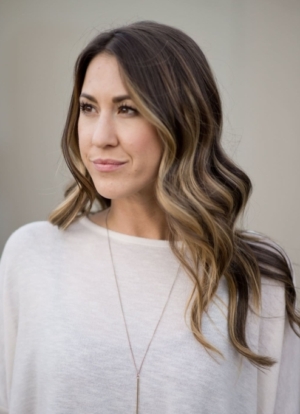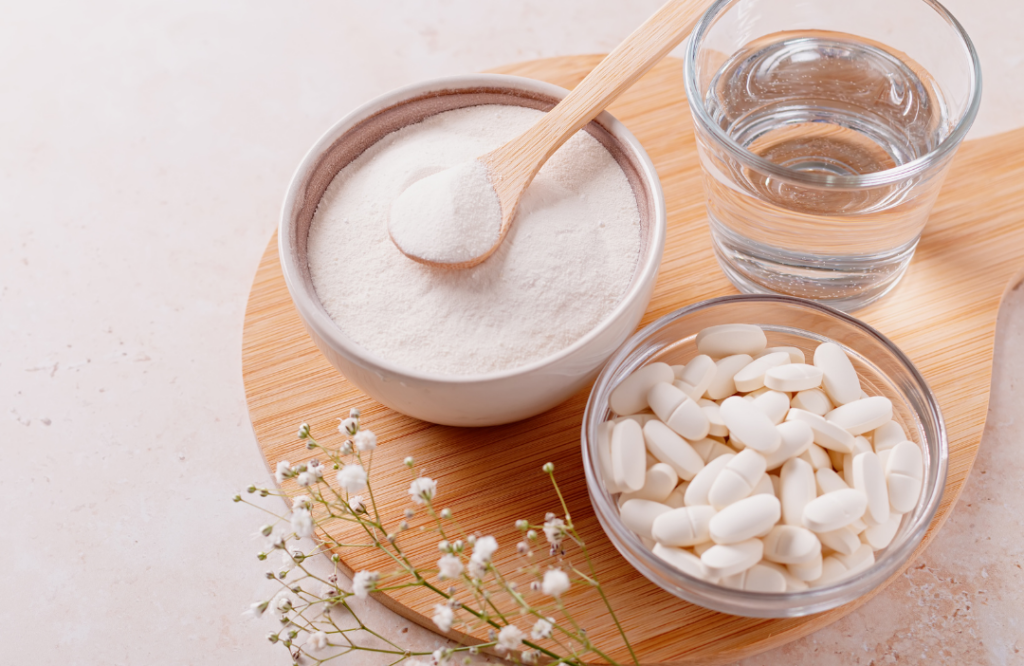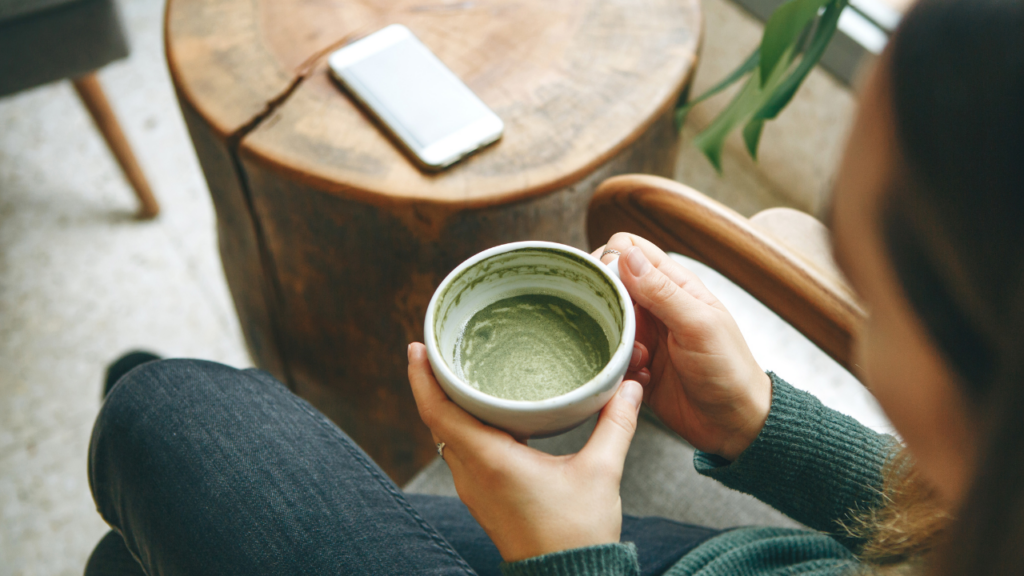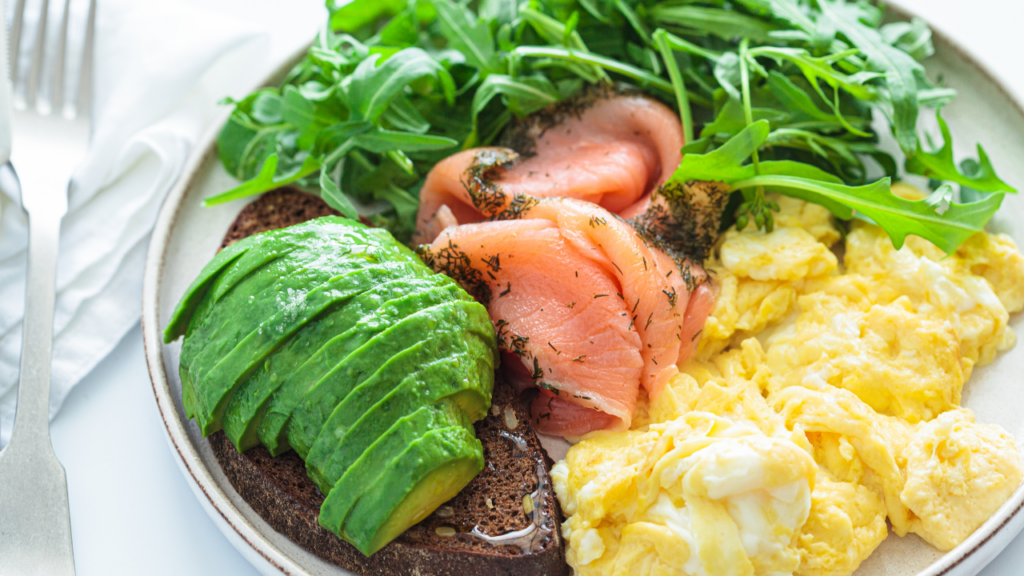Listening to Your Inner No for Better Health
Published on May 26, 2018 by Dr. Caitlin Gordon
I write about topics and techniques I have not mastered or perfected. The medicine is in the writing. The writing makes something gel, and I find I’m better able to integrate the skill into my life. Sometimes, I write about stuff after I’ve learned the lesson, created the habit, or mastered the skill, but often I’m writing as I’m in the thick of it. This post is one of those.
The Easy Inner No and the Hard One
 Until recently, I didn’t identify at all with people who expressed stress or difficulty around saying no. I felt like my “no” comes pretty easy. And it does, to stuff like social events that don’t light me up, or workouts when I’m tired, or even the candy bowl at the nail salon. It even comes easily when someone is projecting their story onto me, yelling at me, being rude, or otherwise engaging in behavior I’m not okay with.
Until recently, I didn’t identify at all with people who expressed stress or difficulty around saying no. I felt like my “no” comes pretty easy. And it does, to stuff like social events that don’t light me up, or workouts when I’m tired, or even the candy bowl at the nail salon. It even comes easily when someone is projecting their story onto me, yelling at me, being rude, or otherwise engaging in behavior I’m not okay with.
Where I’m realizing I could use some help, is in listening to the inner no when it whispers. Turns out it whispers because I’ve taught it to be very quiet when it has feelings about certain things I “should” want to do. The inner no that says: no I’m not in the mood to cuddle, no I don’t feel like going to lunch with my mother, no I don’t want to cook dinner tonight.
My sense of doing the “right” thing— connecting with my partner, spending time with and appreciate my mom while she’s alive and well, preparing nourishing food for myself— totally overrides my inner compass. This is so out of alignment with what I believe. This isn’t honoring my intuition, following my heart, or trusting myself. This is placing my idea of what’s right or good above what actually feels true for me. And the result is resentment, anxiety, and fatigue.
I feel depleted when I ignore this inner no. I’ve convinced myself that I never feel guilty about stuff. Which is true, because I rarely do anything that causes guilt. However, it comes at a hefty cost. In exchange for no-guilt, I’ve abandoned myself. I do it unconsciously. It’s a habit. One that very much doesn’t serve me.
Why the Resistance To the Inner No?
In order to avoid any uncomfortable feelings about what it means that I don’t want to cuddle or hang out with my mom, or am too friggin’ tired to cook, I just do it. It’s a really clever way of bypassing some deeper issues and I’ve gotten quite good at it. I mean, I’ve had myself fooled for years that I don’t feel guilt or shame.
If I get really honest, maybe I don’t want to cuddle because my relationship is dysfunctional and I don’t want to perpetuate the dysfunction by creating more attachment. I don’t always want to spend more time with my mom because I fear I’ll become more like her (even though I love her!). I’m too tired to cook because I’m doing too much in a day and relationships where I’m ignoring my inner no are draining all my flipping energy! Those are hard pills to swallow. Of course, we come up with ways to quiet that inner no when harsh reality is the alternative.
What the Inner No is Not
There is a negotiator-self that chimes in about how sometimes when I ignore my no and make myself do stuff, I actually enjoy it and feel happier. And that’s true! But this is where our ability to zoom out is so essential. What’s the pattern, how often is that the case, and are we avoiding seeing a deeper truth? I’m not talking about forcing yourself to go to the gym and then feeling great after, or not being in the mood for sex once in a while but relaxing into some foreplay anyways until you start feeling it. This is not that.
This is a visceral sense of aversion that you stuff down because it doesn’t fit in with your brain’s idea of how you’re supposed to feel. Afterward, you usually feel anxious, sad, angry, resentful, or numb… not great.
Okay, now that we’ve cleared that up we come to the question of what to do.
First, it should be said that for many if not most people, self-abandonment (when you decide your intuition and gut feelings aren’t important enough to listen to) happens in conflict. We can self-abandon when it comes to saying yes too, this piece is just focusing on the no.
How and Why to Stop Self Abandoning
We need to stop self-abandoning because it hurts us. It disconnects us from our emotional intelligence, our intuition, and our inner compass. When we ignore that little voice inside, we reinforce the story that we can’t trust ourselves. We stop believing that we know what’s best for us. This is a recipe for making poor choices, depression, anxiety, and burn out. It will cause your relationships to deteriorate.
The simple solution is to stop ignoring your inner no. Stop quieting it. Stop thinking your brain knows better than your body. Start trusting that gut feeling, that sense of aversion. Get curious about it.
In order to do this, we have to actually stay connected with our bodies and have self-care practices and support in place to tolerate the uncomfortable feelings that come up.
Staying in the body
 This can be anything from rubbing your feet on the floor to practicing Kundalini. You can engage in deep breathing; you can fully acknowledge your pounding headache. It means feeling what’s going on inside you, physically and emotionally. Is there tension? Is there buzzing? Maybe you feel numb, that’s a feeling too.
This can be anything from rubbing your feet on the floor to practicing Kundalini. You can engage in deep breathing; you can fully acknowledge your pounding headache. It means feeling what’s going on inside you, physically and emotionally. Is there tension? Is there buzzing? Maybe you feel numb, that’s a feeling too.
Create some literal space to be with your feelings that feels safe–somewhere in your home, maybe. And then allow some figurative space to just sit with what comes up. After a few minutes of that, bring in some self-care or supportive practices. The goal is not to wallow in our pain for hours on end. It needs to move through, not get stuck.
Seeking Nourishment
Next, we want to seek nourishment. We can self-nourish or reach out to trusted nourishers in our life. Self-nourishing could be going for a run, dancing to some music, reading a great piece of fiction, meditating, taking a bath, journaling, gardening, cooking, whatever.
If you have feelings come up that feel overwhelming or confusing, seeking out professional support is also a wonderful idea– this might mean finding the right talk therapist, acupuncturist, coach, energy worker, or salt of the earth friend who can listen without needing to fix.
Let me know if you discover any other brilliant ways of listening to your inner no and staying present with yourself. I’m in this with you!
Invest in yourself with transformational health coaching, it’s the smartest investment you’ll ever make.
The contents of this site, including text, graphics, images, and other material are for informational purposes only. Nothing contained in this site is or should be considered or used as a substitute for professional medical or mental health advice, diagnosis, or treatment. Please schedule an appointment for personalized health advice.






